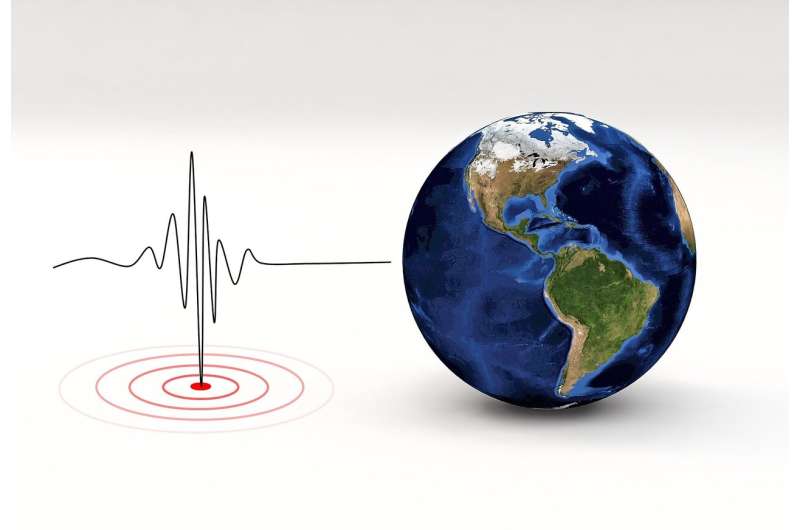This article has been reviewed according to Science X's editorial process and policies. Editors have highlighted the following attributes while ensuring the content's credibility:
fact-checked
reputable news agency
proofread
Earthquakes are shaking North Georgia: Here's what may be behind them

The Peach State is not typically a hotbed of seismic activity, but residents in pockets of North Georgia have been feeling some unexpected vibrations lately after the area was jolted by four small earthquakes over the last week.
The most recent one, a 2.3 magnitude temblor, happened just after midnight on June 10 near the south end of Lake Lanier, according to the U.S. Geological Survey (USGS). It came on the heels of two other earthquakes on June 7 in the same area near the city of Buford—a 2.5 magnitude quake and another of 2.1 magnitude, which shook the area a few hours earlier. Another small quake occurred on June 3 in northwest Georgia outside Dalton.
No damage or injuries have been reported from any of the earthquakes, but the seismic events were enough to raise questions: What's triggering the quakes and should we expect more soon?
Georgia is located in the middle of the North American Plate, the vast tectonic plate that sits beneath almost all of North America, parts of the Caribbean, Greenland and much of the Atlantic Ocean. Earthquakes—particularly strong ones—are much more likely in places like California, which sit along major plate boundaries.
Still, small earthquakes are fairly common in Georgia, experts say. The state typically experiences between 10 and 20 earthquakes above magnitude 2.0 each year, said Andy Newman, a professor of geophysics at Georgia Tech.
As for what's behind the recent shakes, experts say it is difficult to say.
Martin Chapman, a professor of geophysics at Virginia Tech, said Lake Lanier sits near what is known as the Brevard Zone, a major fault system that was active hundreds of millions of years ago when the Appalachian Mountains were forming. But most of those ancient faults are no longer active, and it's more likely that the quakes near Lake Lanier are occurring on minor, unmapped faults in the area, Chapman said in an emailed response.
The other quake near Dalton occurred at the southern end of the Eastern Tennessee Seismic Zone, which regularly experiences small earthquakes. Thomas Pratt, a research geophysicist at the USGS, said it's possible the Northwest Georgia earthquake is linked, but cautioned that quakes in that seismic zone typically occur much deeper below ground than the relatively shallow one that rumbled near Dalton.
Newman and Chapman both said there is evidence tying manmade reservoirs like Lake Lanier, the city of Atlanta's main water source, to earthquakes. Those events, however, usually occur after a reservoir is filled or sees major water level fluctuations. Levels in Lake Lanier have gone up and down at times in its history, but the lake's elevation has remained fairly steady so far this year, data from the U.S. Army Corps of Engineers shows.
The three earthquakes at the lake's southern end represent a "swarm" of seismic activity, but scientists say such clusters are also common.
"Generally, if you have one earthquake, the best place to guess where the next earthquake is going to occur is right near the same location," Newman said.
As for whether Georgia could feel more vibrations soon, experts say it's possible—but unlikely—that the small quakes are a precursor to a more damaging event.
"My advice would be for folks nearby to not be overly concerned, but at the same time, be aware and prepared for the (unlikely) possibility of a stronger shake," Chapman said.
2024 The Atlanta Journal-Constitution. Distributed by Tribune Content Agency, LLC.




















